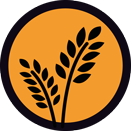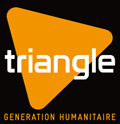AREA OF EXPERTISE

Food security and livelihood

AREA OF EXPERTISE

Food security and livelihood
FUNDING
Objectives:
Since the start of humanitarian intervention in the Darfur context, TGH has received the support of ECHO (European Commission Humanitarian Aid department). This support is crucial in order to achieve highly complicated operations – in terms of logistics and security – that are highly mobilising at staff level.
In Sudan, ECHO is therefore a major partner of our agency. Thanks to ECHO, TGH can operate projects funded by the European Commission, as well as run further activities funded by other funding agencies (the United Nations, for instance); activities that significantly widen the reach of our programmes but would not suffice to justify our presence in Sudan.
Back in June 2004, ECHO gave its support to TGH by funding our programme: Assistance to IDPs in Ryad Camp. Located on the outskirts of Geneina (capital of Western Darfur), the camp hosted over ten thousand people who had fled the fighting and exactions in neighbouring rural areas.
That first programme led to construction of shelters, latrines and showers, as well as implementation of a sanitation mechanism aimed at creating an acceptable sanitary environment and promoting hygiene in the camp. A potable water supply system was also built, providing water to Ryad and surrounding districts of Geneina.
When this programme was completed, and because of the necessity of maintaining services over time, ECHO renewed it trust in TGH and supported an extension of our activities in remote areas where humanitarian aid was less frequent.
In April 2005, TGH launched an integrated programme in Bindizi, including emergency actions such as water supply, construction of latrines and distribution of Non Food Items (jerricans, plastic sheeting, mosquito nets, etc). In 2006, once again backed by ECHO, TGH extended its operations to Um Dukhun.
Because agricultural activities imply that the IDPs leave the camps, thus exposing them to potential attacks, TGH's agricultural programmes included actions targeting the Arabic communities and displaying the neutrality that contributes to restoring a form of coexistence that was alive before the conflict. In 2005, ECHO's sponsorship, central to this programme, allowed TGH to support a “back to the land” process, maintaining traditional seasonal patterns over the three years that followed. The success of that agricultural campaign led TGH, once again sponsored by ECHO, to extend its agricultural actions to Mukjar and Um Dukhun camps, and bordering villages. In addition to large distributions of seed, TGH, performed livestock vaccination campaigns, construction of wells on grazing grounds and transhumance routes, and finally installation of a veterinary clinic in Bindizi.
At present, TGH's entire operation, supported by ECHO, has 180.000 beneficiaries.
The Darfur conflict continues. Its violence and the threat it represents for civil populations forces the displacement of many families, multiplying the camp population and preventing significant motions of return. The aid provided in the camps, along with the reactivity required to cover the needs of new arrivals, must be supported over time to prevent the situation's deterioration. While the conflict must be analysed with caution owing to its complexity and the divergence of interests and opinions raised by it, access to natural resources remains central to its continuance. Therefore, when working with the resident population, IDPs, nomads or semi-nomads one must carefully examine each micro-context to avoid sparking local conflict between the people living together in Darfur.
Through 2010, thanks to steady support from ECHO, TGH can continue its effort to provide potable water to IDPs and control major health risk vectors as well as monitoring and analysing the constant movements of population and supporting their agricultural production capacities.
The insecurity that rules in Darfur has progressively affected humanitarian organisations, with both the incidence and severity of events growing since 2006. TGH, along with most NGOs operating in Darfur, has adjusted its work methods to strengthen the protection of its teams and equipment. To avoid exposing expatriate teams to the major risk of being kidnapped, field work is increasing delegated to Sudanese members of staff, for whom the risk is less. The internal promotion and training process has therefore been reinforced since 2009, in the aim of preserving the programmes' quality while continuing the challenging task of providing essential services to the beneficiaries.